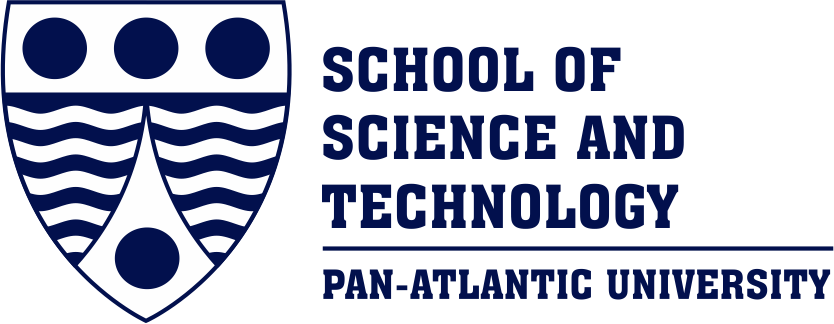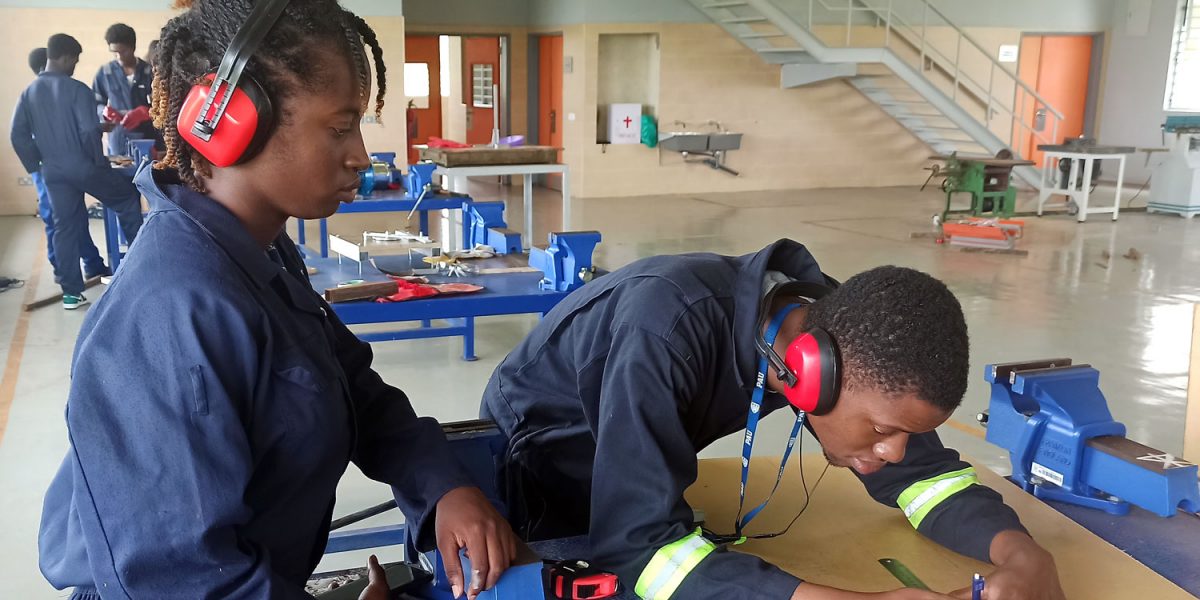B.Eng. in Mechatronics Engineering
Mechatronics Engineering is a branch of engineering that deals with developing products, systems, and processes that involve a synergistic integration of aspects of mechanical (such as hydraulics and pneumatics), electronic (as in sensors and communication), and electrical engineering (control), computing, robotics, and information technology. Application areas of mechatronics include such diverse fields as medical and agricultural equipment, military hardware, oil and gas, automobile, home, and industrial automation, etc. The multidisciplinary nature of mechatronics entails design principles, processes, models, toolsets, and philosophy that are unique to mechatronics engineers. This enables the design and development of simpler, more economical, and reliable systems.
The B.Eng. in Mechatronics ensures the production of high-quality systems and equipment with high precision and accuracy and improves production processes through automation. Due to their multidisciplinary skills, mechatronics engineers are in high demand worldwide. Topics covered include mechanism design, robot design, motor and sensor integration and theory, microcontroller programming using numerous sensors and actuators, mechanics prototyping, and design. Students will work in teams to complete a hardware-based final project. The programme has a unique balance of critical analytical subjects and professional skills, which enables students to graduate with the confidence to face challenging engineering situations in the industry. The management skills necessary to operate successfully as a multidisciplinary engineer in modern industry are promoted and developed at all stages of the course.
Objectives
The programme’s overall objective is to provide students with relevant skills in designing and prototyping mechatronic systems in evolving technological areas such as Robotics, Controls Engineering, Intelligent Machines, Electromechanical Systems, Industrial Automation, Embedded Systems, Artificial Intelligence, and Software Engineering. On completion of the programme, successful students should be able to:
- demonstrate systematic knowledge and understanding of essential facts, concepts, theories, and principles of mechatronics engineering and the broader multidisciplinary engineering context and its underpinning science and mathematics;
- apply knowledge of Science, Technology, Engineering, and Mathematics (STEM) fundamentals to Mechatronics Engineering-related problems;
- demonstrate practical engineering skills in the design and development of mechatronics products;
- demonstrate the ability to apply appropriate quantitative science and engineering tools to analyzing problems;
- demonstrate creative/innovative ability in the synthesis of solutions and in formulating designs;
- demonstrate an understanding of different roles within a team and to exercise leadership;
- display well‐developed critical thinking capabilities, including analyzing, evaluating, and critically reflecting on information, decisions, and behavior to enable strategic thinking and adaptability in a constantly changing global environment.
- create, select, and apply appropriate techniques, resources, and modern engineering and IT tools, including prediction and modeling, to complex engineering activities, to understand their limitations;
- apply independent learning skills that encourage regular access to new knowledge and information;
- use effective written communication and well‐developed interpersonal skills;
- design, specify, plan, organize, and implement a mechatronics system;
- compare, contrast, and evaluate alternative approaches to mechatronics system designs.
- plan the extension and upgrading of the existing mechatronics system effectively.
- demonstrate a critical awareness and evaluation of current research within
engineering; - develop entrepreneurial skills and adequate training in human and organizational skills with a spirit of self-reliance to set up their businesses; and
- possess the appropriate skills and knowledge to pursue further study and professional development opportunities.
Unique Features of the Programme
Some unique features of the program include:
- stimulating intellect and encouraging students to develop ingenuity and originality in problem-solving.
- encouraging students to maintain intellectual curiosity that will motivate them to pursue meaningful lifelong learning;
- equipping students with the relevant intellectual capacity, contemporary software proficiency, communication, entrepreneurial and other relevant soft skills like teamwork, flexibility, adaptability, and interpersonal knack to engage effectively in engineering practice, business, and leadership roles;
- In-depth exposure to computer-based simulation tools that reflect global best practices for enhanced competitiveness.
Employability Skills
Mechatronics engineers work in companies and firms that require hi-tech input into what they are developing. They may work in a laboratory, a processing plant or an engineering office and research opportunities in emerging fields like bioengineering, nanotechnology, and robotics. Typical job responsibilities of mechatronic engineers are:
- developing new solutions to industrial problems using mechanical and electronic processes and computer technology;
- design and building entirely new products by integrating various technologies, for example, developing robotic vehicles for underwater exploration;
- building and testing factory production lines by introducing automation to improve existing processes;
- maintaining and improving on previous industrial and manufacturing processes and designs, for example, robotic lawnmowers and robot floor cleaners;
- designing, developing, maintaining, and managing high-technology engineering systems for the automation of industrial tasks;
- applying mechatronics or automated solutions to the transfer of material, components or finished goods;
- applying advanced control systems, which are usually computer-driven;
- apply electronics and mechanical processes and computers to tasks where the use of human labour may be dangerous (like underwater exploration, mining or forestry);
- studying the feasibility, cost implications, and performance benefits of new mechatronics equipment; and
- carrying out the modeling, simulation, and analysis of complex mechanical, electronic, or other engineering systems using computers.
21st Century Skills
The programme has emphasized 21st-century skills — problem-solving, collaboration (teamwork), digital literacy, communication, learning to learn/metacognition, creativity and innovation, information literacy, critical thinking/decision-making, and artificial intelligence (AI) through collaborative research projects and group assignments.
Compatibility of the programme with an institutional mission:
- The programme reinforces the mission of the university.
- It is envisaged that the program will contribute to national development through the provision of competent mechatronic engineers who can solve both local and international problems, thus saving and earning foreign exchange for the country.
- Given the drive of the country towards equitable and sustainable economic growth and development by attracting foreign and domestic investments, this objective in turn implies an increased ability of this nation’s people to compete globally. A strong base of scientific knowledge on mechatronics has become a key success factor.
- This programme will also have other indirect benefits to the Nation, such as:
- It will have an entrepreneurial orientation so that the graduates will be able to start well-
managed and sustainable engineering ventures that will contribute to the economic life of the country. - It will develop content in mechatronics engineering business studies that can be useful to other universities and institutions of higher learning in the country.
- The School, with its high quality of education, will attract and retain human resources that would otherwise leave the country to pursue this kind of education in foreign universities. Nigeria will therefore retain qualified manpower for nation-building, as well as considerable savings in foreign exchange.
- Research carried out at the School will be relevant to the needs of the environment. Industry and government institutions will thus be able to benefit from the dissemination of research results, as they will provide useful information and guidance for the good governance of organizations. Research will also provide specific solutions to the problems of industry and society.
- The School will help put more professionalism into mechatronics engineering and related engineering and technology industry that in turn can translate into national economic growth thus preventing the outsourcing of professionals and facilities for key functions in engineering and the technology industry as obtained at the moment.
- The School will attract people from other African countries to its programmes and may thus contribute to the economic development of Nigeria and Africa at large. Nigeria would thus be an agent of economic development in Africa and play the leading role in the African continent in this industry that belongs rightly to her by virtue of her human and material endowments.
- It will have an entrepreneurial orientation so that the graduates will be able to start well-


